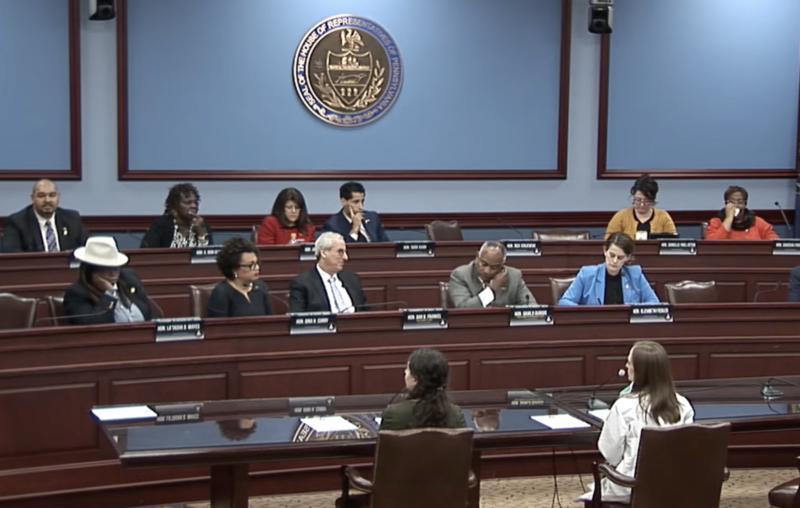House Dems hold hearing on expanding access to reproductive health care

Democratic state lawmakers heard testimony from reproductive health care providers across the commonwealth on Wednesday about what can be done at the legislative level to expand access to abortion care.
State Rep. Liz Fiedler, D-Philadelphia, said that with the U.S. Supreme Court’s decision to overturn Roe v. Wade, and the loss of a “decades-long assurance” of care discussions about how to expand care in Pennsylvania are necessary and warranted.
Dr. Sarah Horvath, medical director at Planned Parenthood Keystone, said that over the last nine months since the U.S. Supreme Court’s ruling in Dobbs v. Jackson overturned the federal right to an abortion, providers have seen a 20% increase in the need for care in Pennsylvania.
With bans in place in neighboring states such as West Virginia, Horvath said Planned Parenthood providers are working longer hours to help out-of-state patients.
“We are doing everything we can to meet this need,” Horvath said during Wednesday’s meeting of the House Democratic Policy Committee in Harrisburg.
To meet the growing need for care, providers said that changing Pennsylvania’s Abortion Control Act, which stipulates that abortion care must be performed by a physician, to allow midwives and advanced practice clinicians (APCs) to provide abortion care, would lower patient wait times, improve access in underserved areas, and lower maternal mortality rates.
“This is a commonsense change,” Horvarth said. “Pennsylvania can play a critical role in expanding access to reproductive health care by removing medically unnecessary barriers that prevent qualified clinicians from providing abortion care.”
Horvath explained that APCs can already provide other reproductive health services to patients, including intrauterine device (IUD) insertion, endometrial biopsy, and early miscarriage management.
Dr. Sheila Ramgopal, CEO at Allegheny Reproductive Health Center, echoed Horvath’s testimony, adding that APCs are just as qualified as physicians to perform surgical and medication abortions.
“These providers have similar or lower complication rates than their OB/GYN peers in abortion provision,” Ramgopal said. APCs “excel at delivering patient-centered care and increase access to healthcare by strengthening our very short staffed medical provider workforce.”
Katrina Lipinsky, a Reading-based midwife, expressed frustration that she cannot provide her patients with abortion care, despite the fact that Berks county has just one abortion care provider to serve all of its residents.
“The medical treatment for abortion is exactly the same as if they were having a miscarriage – but I am not legally allowed to provide this very same care,” Lipinsky said.
State Rep. Mary Jo Daley, D-Montgomery, who also serves as co-chair of the Women’s Health Caucus, asked providers if two separate pieces of legislation — one to expand who can provide an abortion in Pennsylvania, and another to ensure Full Practice Authority — would help providers meet the growing need for reproductive health care.
Horvath said that a two-pronged legislative approach would go a long way to addressing the surge in demand for reproductive health care, but it wouldn’t eliminate the “hostility” that providers experience through restrictive abortion laws.
She noted that before the U.S. Supreme Court’s ruling in Dobbs v. Jackson Women’s Health Organization, which toppled Roe, Pennsylvania was considered hostile to abortion care providers for its restrictive laws.
But with full abortion bans in effect in more than a dozen other states, that view has only recently begun to change.
“This is just the tip of the iceberg on changing that hostility,” Horvath said. “You all have the power to support our patients and all Pennsylvanians.”








